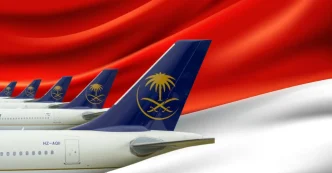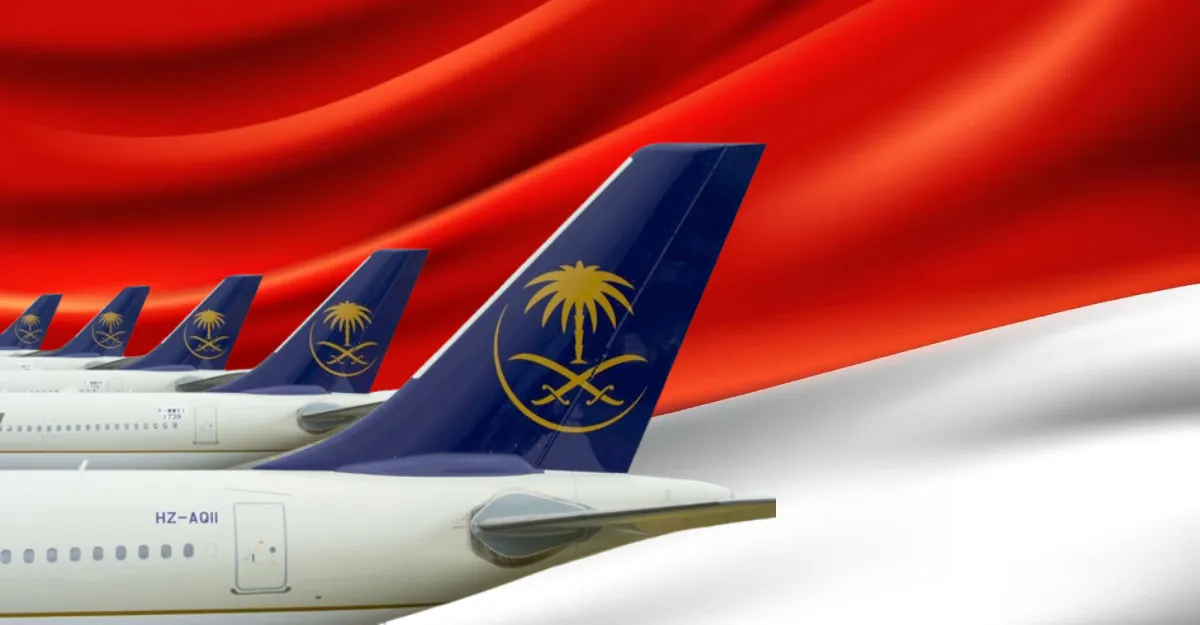Two separate bomb threats targeting Saudia Airlines flights carrying Hajj pilgrims back to Indonesia have raised serious concerns about aviation security and the potential for coordinated attacks. The incidents, occurring within days of each other in late June 2025, forced emergency diversions to Kualanamu International Airport in Medan, North Sumatra, disrupting the journeys of hundreds of passengers returning from Jeddah, Saudi Arabia. While no explosives were found, the threats have prompted a multinational investigation involving Indonesian authorities, Interpol, and Saudi aviation officials.
Emergency Diversions Amid Heightened Alert
On Saturday, June 21, 2025, a Saudia Airlines flight (SV5688) en route from Jeddah to Surabaya in East Java was diverted after air traffic controllers in Jakarta received a bomb threat via an anonymous call. The caller, using a virtual private network (VPN) to mask their identity, claimed the aircraft would explode while it was flying over Aceh, Indonesia’s westernmost province. The pilot made an emergency landing at Kualanamu International Airport, just outside Medan, ensuring the safety of all 376 passengers and 13 crew members on board.
A thorough search by the Indonesian Military (TNI) and the police bomb squad found no suspicious objects, and the plane was declared safe. North Sumatra Police chief Inspector General Whisnu Hermawan Februanto confirmed the findings at a press conference later that day. The passengers were subsequently flown to their intended destination, Juanda International Airport in Surabaya, in the early hours of Sunday, June 22.
This incident followed a strikingly similar event just days earlier on Tuesday, June 17, when Soekarno-Hatta International Airport near Jakarta received a bomb threat via email targeting Saudia flight SV5726, also traveling from Jeddah to Jakarta. The email claimed the plane, carrying 442 Hajj pilgrims, would explode upon landing. The flight was diverted to Kualanamu Airport in Medan, and after a security sweep confirmed no danger, the passengers were transported to Jakarta on Wednesday morning, June 18.
Investigations Point to International Links
Indonesian authorities are grappling with the challenge of identifying the perpetrators behind these threats, which appear to target returning Hajj pilgrims specifically. In the first incident, investigators traced the email sender’s location to India, raising the possibility of an international dimension to the threats. The second threat, made via a VPN call, has proven more difficult to trace, with the caller’s identity and location remaining elusive.
Inspector General Whisnu Hermawan Februanto noted that the investigation now involves Interpol due to the cross-border nature of the threats. “We are working with international partners to uncover the source and motive behind these incidents” he said during the press conference. Meanwhile, the National Counterterrorism Agency (BNPT) has engaged with Saudi authorities to verify the origins of the threats. BNPT chief Commissioner General Eddy Hartono emphasized the importance of bilateral coordination, stating, “The main thing is that we coordinate bilaterally to ensure and verify the source [of the threat]” as reported by Antara news agency.
The Transportation Ministry’s director general for civil aviation, Lukman F. Laisa, also confirmed that discussions with Saudi Arabia’s General Authority of Civil Aviation (GACA) are underway to enhance flight security measures. In a statement on Saturday, he underscored the urgency of joint efforts to prevent further disruptions caused by such threats.
Expert Warns of Potential Coordination
Terrorism and radicalism researcher Rakyan Adibrata has suggested that the two incidents are unlikely to be coincidental given their proximity in time and similar targets. “Seeing that it happened twice in such a short time span, I’d say it’s impossible to call it a coincidence” he said on Sunday, June 22. Adibrata commended the swift response by authorities to divert the flights and ensure passenger safety but cautioned that more incidents could occur if the perpetrators and their motives remain unidentified.
The targeting of Hajj pilgrims, a deeply symbolic group in Muslim-majority Indonesia, adds a layer of complexity to the investigation. While no group has claimed responsibility, the timing—coinciding with the return of thousands of pilgrims after the annual pilgrimage—raises questions about whether the threats are intended to sow fear among religious communities or disrupt national stability. If confirmed as acts of intimidation, these incidents could have broader implications for public confidence in aviation security during peak travel seasons.
Aviation Security Under Scrutiny
Indonesia, with its vast archipelago and heavy reliance on air travel, faces unique challenges in securing its airspace and airports. The country has made significant strides in bolstering aviation safety since a series of high-profile incidents in the early 2000s, but hoax bomb threats and other non-physical disruptions remain a persistent concern. The use of VPNs and anonymous communication methods by perpetrators further complicates efforts to prevent such incidents, as authorities struggle to keep pace with evolving technologies.
The economic impact of flight diversions and heightened security measures cannot be overlooked. Emergency landings and delays disrupt airline schedules, strain airport resources, and impose additional costs on both operators and passengers. While exact figures for the Saudia Airlines diversions are not yet available, the ripple effects of such incidents often include compensation claims and lost revenue for airlines. For instance, rerouting a single flight can cost tens of thousands of dollars, with additional expenses for passenger accommodations and security sweeps.
Moreover, the psychological toll on passengers should not be underestimated. Many of the affected individuals were returning from the Hajj, a spiritually significant journey, only to be met with fear and uncertainty. While no injuries were reported, the experience of an emergency landing due to a bomb threat can leave lasting anxiety among travelers, potentially deterring future pilgrimages or air travel.
Broader Implications for Regional Security
The bomb threats against Saudia Airlines flights also highlight the interconnected nature of aviation security in the Southeast Asian region. Indonesia serves as a major hub for Muslim pilgrims traveling to and from Saudi Arabia, with millions participating in the Hajj each year. Any disruption to these routes affects not only national interests but also regional cooperation on counterterrorism and transportation safety.
Historically, Indonesia has faced significant challenges from extremist groups, including the 2002 Bali bombings that killed 202 people, many of them foreign tourists. While the country has since implemented robust counterterrorism measures, the specter of religiously motivated violence lingers in public consciousness. The current bomb threats, though unconfirmed as acts of terrorism, evoke memories of past attacks and underscore the need for vigilance.
At the same time, authorities must balance security concerns with the risk of overreaction. False alarms and hoax threats, while disruptive, do not always indicate an imminent danger. Overzealous responses could strain resources and alienate the public, particularly if innocent individuals are wrongly implicated during investigations. Striking the right balance between precaution and proportionality will be critical as the probe unfolds.
Looking Ahead: Strengthening Defenses
As Indonesian authorities collaborate with international partners to trace the origins of these bomb threats, the incidents serve as a stark reminder of the vulnerabilities inherent in global aviation networks. Enhancing cybersecurity measures to counter anonymous threats, improving intelligence-sharing with foreign agencies, and investing in advanced screening technologies at airports could help mitigate future risks.
For now, the safety of Hajj pilgrims and other travelers remains the top priority. The swift actions taken to divert the affected flights demonstrate a commitment to protecting lives, but the recurrence of such threats within a short timeframe suggests that more comprehensive solutions are needed. As the investigation continues, questions linger about the motives behind these disruptions and whether they signal a broader campaign targeting Indonesia’s aviation sector or its religious communities.
With thousands more pilgrims expected to return in the coming weeks, the pressure is on to ensure their journeys home are safe and uneventful. The nation watches closely, hoping for answers that will prevent further fear and uncertainty in the skies above.
















